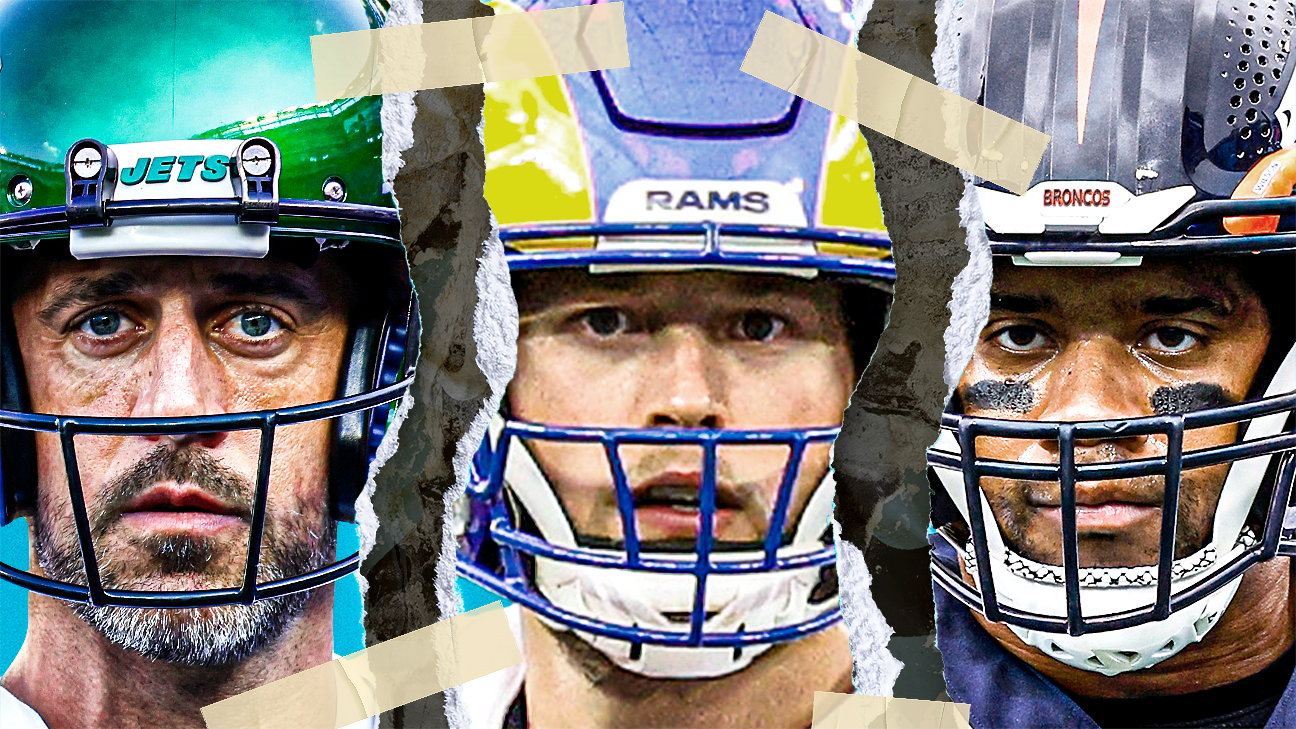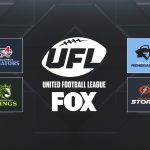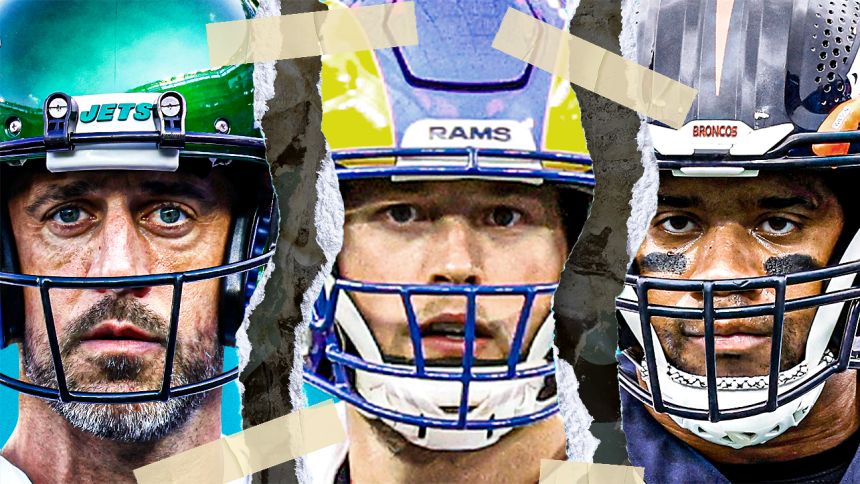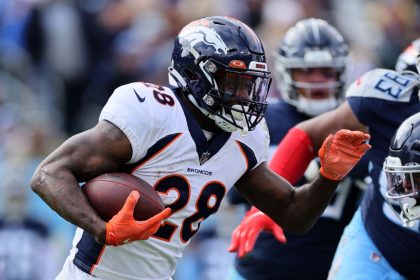
When the Seattle Seahawks host the Los Angeles Rams on Sunday (4:25 p.m. ET, Fox), the game will feature the 2022 NFL Comeback Player of the Year in Seattle’s Geno Smith facing a quarterback who hopes to follow in his footsteps.
Smith’s transformation from career backup to surprise star was one of the top storylines last season, a stark contrast to the narrative of the Rams’ Matthew Stafford, who went from reigning Super Bowl champ to a struggling, oft-injured player.
Stafford wasn’t the only quarterback who took a major step back last season. Aaron Rodgers went from winning his fourth MVP with the Green Bay Packers in 2021 to suffering through the largest decline in QBR in 2022. Russell Wilson‘s debut season with the Denver Broncos was just as futile.
New England Patriots QB Mac Jones went from finishing second in Offensive Rookie of the Year voting to rumors of losing his starting spot, and Baker Mayfield will be playing for his third team in just over a year.
How can these quarterbacks, who are scheduled to start Week 1, be fixed?
For Smith, it was finding the right system, getting an opportunity and building his confidence, but each case is unique. ESPN NFL analyst Matt Bowen takes a look at what it will take to get these five quarterbacks back on the right track, NFL Nation reporters detail why each is looking for redemption and Mike Clay provides expected fantasy stats for this season.

![]()
Regression: After winning his fourth MVP and leading the NFL in QBR (74.1) in 2021, Rodgers fell to 26th last season (39.3). His 34.8 dip in QBR was the largest in the league.
What went wrong: Trading Davante Adams to the Las Vegas Raiders was the first issue. It left Rodgers without a true No. 1 receiver. Allen Lazard, Randall Cobb, Romeo Doubs and Christian Watson all had their moments, but none could come close to replicating the threat of Adams.
“I feel like obviously losing Davante was a big deal, but we didn’t fill that void,” Rodgers said after the season. “There was hope in certain things that were going to fill that void. Ultimately, it didn’t happen.”
It didn’t help that Rodgers broke his right thumb in Week 5. He played through it, sometimes taping it and sometimes not. He refused to take a week or two off, and the Packers didn’t make him. There’s no way to measure it, but the feeling by the end of the season that Rodgers and the Packers were done might have impacted his play, as well. The result was the second-highest interception total (12) of his career and the lowest Total QBR since he became a starter. — Rob Demovsky
The fix: Rodgers still has top-five traits. But the tape and the numbers tell us he can improve his decision-making and passing efficiency on third-level throws. In 2022, Rodgers completed just 39.8% of his passes of 15 or more air yards, which ranked 28th in the league, slightly ahead of Zach Wilson (38%). And Rodgers’ seven interceptions on those throws tied for third most.
Taking the throws that are available instead of forcing the ball down the field, and tightening his footwork when looking vertically can be corrected by Rodgers. Plus, he will see a bump in receiving talent with the Jets, while playing in a familiar system under ex-Packers offensive coordinator Nathaniel Hackett that caters to his skills as a pocket passer with movement ability. — Bowen
Clay’s expectation for 2023: 4,025 yards, 28 touchdowns, 10 interceptions
1:40
Will Russell Wilson allow Sean Payton to coach him?
Booger McFarland questions whether Sean Payton’s coaching can bring out the best in Russell Wilson this season with the Broncos.
![]()
Regression: Wilson’s QBR dropped 23.8 points in 2022 to 36.7, which was 27th in the league, and his 11 interceptions were tied for the fifth most in the NFL. From a season-opening loss in Seattle to coach Nathaniel Hackett being fired after 15 games, Wilson’s first year in Denver — which traded five draft picks to acquire Wilson and signed him to a five-year, $245 million extension — was a flop.
What went wrong: It’s difficult to list all of the things that went wrong for Wilson. The pass protection was spotty at best, and consistently porous at worst, in an injury-ravaged season across the depth chart. Wilson’s footwork deteriorated as he often held the ball too long trying to save plays and took too much punishment (a league-high 55 sacks). His decision-making was sometimes erratic as he put the ball in harm’s way. And the scheme didn’t give him enough viable options in the receivers’ route tree. Top that off with the constant reliance on a three-wide-receiver set in which Wilson wasn’t protected well enough, and he was left in horrific down-and-distance situations. — Jeff Legwold
The fix: An instinctual thrower who struggles to stay on schedule, Wilson must deliver the ball on time and in rhythm to produce consistent numbers in coach Sean Payton’s system. Last season, Wilson’s average time to throw was 2.98 seconds, tied for fourth highest in the league with the Pittsburgh Steelers‘ Kenny Pickett. Wilson’s eye level in the pocket must improve; he also has a tendency to voluntarily play outside of structure. However, with more defined reads, quick-game throws and the play-action schemes that create midlevel targets for the quarterback, Payton and his staff can put Wilson in a position to throw with more scripted rhythm from the pocket, thus using his second-reaction skills only when necessary. — Bowen
Clay’s expectation for 2023: 3,858 yards, 24 TDs, 11 INTs
![]()
Regression: Jones finished second in Offensive Rookie of the Year voting and made the Pro Bowl in 2021 after posting a 50.9 QBR. That number slipped to 36.2 last season (28th in the league) as Jones threw 14 TD passes and 11 interceptions.
What went wrong: Coach Bill Belichick overhauled the offensive system that Jones had thrived in as a rookie and assigned longtime defensive coach Matt Patricia to carry out his vision, with longtime special teams coach Joe Judge as Jones’ quarterbacks coach. The unconventional approach sparked Jones’ slide, with the signal-caller’s emotions sometimes getting the better of him on the field and on the sideline. A Week 3 high ankle sprain didn’t help. “The biggest thing that we’ve all talked about is just having a fresh start,” Jones said. “I think there’s a lot of learning experiences from last year; and this year, it’s all about just working together.” — Mike Reiss
The fix: The move to hire Bill O’Brien as O-coordinator and quarterbacks coach is an immediate boost for Jones, who will now throw in a much more structured system. Remember, Jones lacks high-level traits as a thrower, and his movement skills are below average. He is a pocket passer who must win pre-snap, identifying defensive coverages to deliver the ball with timing and location.
O’Brien can insulate the middle of the field for his quarterback, giving him leveled reads so he can target schemed voids in the coverage, as Jones completed 75% of his throws last season on passes inside of the numbers (tied for second highest in the league with the Philadelphia Eagles‘ Jalen Hurts). And given the lack of true difference-makers in the Patriots’ wide receiver room, the scheme matters in setting up Jones to see things fast and throw with consistent accuracy. — Bowen
Clay’s expectation for 2023: 3,356 yards, 17 TDs, 12 INTs
![]()
Regression: Stafford played in nine games because of injury, eventually going on the injured reserve list with a spinal contusion on Dec. 20. His QBR dipped 18.9 points from the year prior to 50.3, which ranked 22nd. Despite missing nearly half the season, Stafford still threw eight interceptions.
What went wrong: Coming off a thrilling Super Bowl-winning campaign, few could have predicted the Rams’ attempt to run it back would result in total disaster, with so many players, including Stafford, dealing with significant injuries. Stafford did not throw during the 2022 offseason and was limited during training camp because of tendinitis in his right elbow. That played a part in a slow-developing chemistry with the offense early in the season. It didn’t help that Stafford had little support in the run game, that he was playing behind a makeshift offensive line forced to start a new combination of players weekly due to injuries and that key wide receiver Van Jefferson was sidelined because of a knee injury. — Lindsey Thiry
The fix: An aging gunslinger (35 years old) who still showcases some of the best arm talent in the league, Stafford will continue to play with an aggressive mindset. That’s part of his game. And we also know that the system works for Stafford under Sean McVay, with concepts that put the quarterback in a position to target all three levels of the field. The strategy is to see it and rip it.
However, Stafford must have an efficient run game at this stage of his career in order to lower the throwing volume behind an offensive line that is below average in pass protection. In 2022, the Rams averaged just 4.0 yards per carry (27th in the NFL) and only 2.36 yards before first contact (24th). Those numbers simply have to improve, allowing the Rams to build off the run game with play-action pass and boot concepts that create more clean-pocket throws for Stafford. — Bowen
Clay’s expectation for 2023: 4,266 yards, 21 TDs, 13 INTs
1:50
Why did the Bucs decide to make Baker Mayfield the starter?
Jenna Laine breaks down how the Buccaneers came to the decision of naming Baker Mayfield the starter for Week 1 vs. the Vikings.
![]()
Regression: The 2018 No. 1 overall pick struggled after being traded from the Cleveland Browns to the Carolina Panthers on July 6, 2022. Mayfield went 1-5 as a starter after beating out Sam Darnold for the job in camp and was released by the Panthers in December. He then signed with the Rams, with whom he went 1-3 upon taking over for John Wolford after just one series and leading the Rams to victory against the Las Vegas Raiders two days after arriving in L.A. Mayfield became the starter for the final four games with the Rams. He has since won the Buccaneers’ starting job over Kyle Trask; but last season, Mayfield’s 24.5 QBR was last among qualified QBs.
What went wrong: It started with the Panthers, for whom coach Matt Rhule was already on a short leash before being fired following a 1-4 start while Mayfield was running the show. The offensive line was horrible, putting Mayfield under constant pressure. The running game, despite the presence of Christian McCaffrey, was not utilized in a way that took the pressure off Mayfield. The system didn’t call for enough play-action, a strategy that helped fuel Mayfield’s most successful season in 2020. In his time with Carolina, he had six interceptions to six touchdowns, but with the Rams, he threw only two interceptions to four touchdowns. When Mayfield returned from a high ankle sprain that sidelined him for one game with Carolina, he remained the backup to PJ Walker. Mayfield got one other start after Walker was sidelined with an injury, but that loss sealed Mayfield’s fate with the Panthers. It was a perfect storm of what could go wrong did go wrong. — David Newton
The fix: Late in the play, Mayfield tends to react frenetically, which impacts his footwork and decision-making. The fix? Define it for Mayfield through play-action, where he can stick the back foot at the top of the drop and drive the ball on crossers, overs and in-routes, while sprinkling in the schemed shot plays off max protection.
Back in 2020, Mayfield posted a QBR of 90.7 on play-action throws, with 13 touchdowns and one interception. And he’ll have two prime targets on the Buccaneers in Chris Godwin and Mike Evans, who can work the second and third levels of the field. The blueprint for Mayfield in his best pro years has always centered around a more run-heavy system with play-action elements. — Bowen
Clay’s expectation for 2023: 2,419 yards, 12 TDs, 9 INTs










